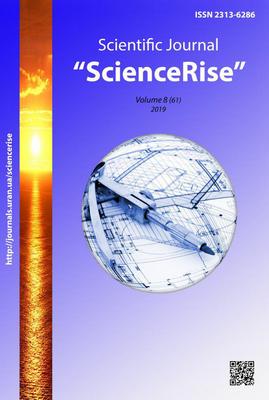Application of methods of fuzzy mathematics in problems of evaluation of construction projects
DOI:
https://doi.org/10.15587/2313-8416.2019.177945Keywords:
construction project, composite uncertainty, criteria for evaluation, effective objects, fuzzy factorAbstract
The character of the uncertainty that accompanies the task of evaluating and comparing construction projects has been investigated. Fuzzy factors have been systematized, most often complicating the examination of projects in which the objects of construction were not finalized at the time of evaluation. Partial evaluation criteria have been formalized, which will provide a sound justification for choosing the best project in the context of compositional uncertainty. The scheme of formation of integral evaluation criterion has been offered. Models and methods of fuzzy mathematics have been used in formalizing partial and forming integral evaluation criteria
References
DBN. V. 1.2.-2:2006 (2007). Systema zabezpechennia nadiinosti ta bezpeky budivelnykh obiektiv. Navantazhennia i vplyvy. Normy proektuvannia. Chynnyi vid 2007-01-01. Kyiv: Stal, 60. Available at: https://dbn.co.ua/load/normativy/dbn/1-1-0-753
Hnatiienko, H. M.; Durdynets, V. V., Saienko, Yu. I. (Eds.) (2000). Metody otsinky kompetentnosti spetsialistiv. Matematychni ta informatsiini problemy prohnozuvannia naslidkiv tekhnohennykh ta pryrodnykh katastrof. Sotsialno-ekonomichni naslidky tekhnohennykh ta pryrodnykh katastrof: ekspertne otsiniuvannia. Kyiv: Stylos, 260.
Isaienko, D. V. (2018). Analysis of mathematical methods to intelligent decision support systems in the field of technical regulation of construction. Management of Development of Complex Systems, 36, 95–99.
Snytiuk, V. Ye. (2000). Zadacha vyboru optymalnoi alternatyvy v umovakh kompozytsiinoi nevyznachenosti. Visnyk ChITI, 2, 140–145.
Ghoreishi, S. F., Allaire, D. L. (2016). Compositional Uncertainty Analysis via Importance Weighted Gibbs Sampling for Coupled Multidisciplinary Systems. 18th AIAA Non-Deterministic Approaches Conference. doi: http://doi.org/10.2514/6.2016-1443
DSTU-N B V.2.5-37:2008 (2008). Nastanova z proektuvannia, montuvannia ta ekspluatatsii avtomatyzovanykh system monitorynhu ta upravlinnia budivliamy i sporudamy. Available at: http://profidom.com.ua/v-2/v-2-5/1796-dstu-n-b-v-2-5-372008-nastanova-z-projektuvanna-montuvanna-ta-jekspluataciji-avtomatizovanih-sistem-monitoringu-ta-upravlinna-budivlami-i-sporudami
Ruszczyński, A., Shapiro, A. (2003). Stochastic Programming Models. Stochastic Programming, 10, 1–64. doi: http://doi.org/10.1016/s0927-0507(03)10001-1
Guimarẽes, A. C. F., Ebecken, N. F. F. (1999). FuzzyFTA: a fuzzy fault tree system for uncertainty analysis. Annals of Nuclear Energy, 26 (6), 523–532. doi: http://doi.org/10.1016/s0306-4549(98)00070-x
Isaienko, D. V., Ploskyi, V. O., Terenchuk, S. A. (2018). Formation of the fuzzy knowledge of the knowledge support system for decision-making technical regulation of construction activity. Management of Development of Complex Systems, 35, 168–174.
Kartavykh, S. A., Terenchuk, S. M. (2019). Models and methods for evaluating construction projects under conditions of compositional uncertainty. Management of Development of Complex Systems, 39, 84–89.
Snitiuk, V. E., Rifat, Mokhammed Ali (2002). Modeli processa priniatiia adaptivnykh reshenii kompozicionnoi struktury s determinirovannymi i veroiatnostnymi kharakteristikami. Radioelektronika i informatika, 4, 123–127.
Downloads
Published
Issue
Section
License
Copyright (c) 2019 Serhii Kartavykh

This work is licensed under a Creative Commons Attribution 4.0 International License.
Our journal abides by the Creative Commons CC BY copyright rights and permissions for open access journals.
Authors, who are published in this journal, agree to the following conditions:
1. The authors reserve the right to authorship of the work and pass the first publication right of this work to the journal under the terms of a Creative Commons CC BY, which allows others to freely distribute the published research with the obligatory reference to the authors of the original work and the first publication of the work in this journal.
2. The authors have the right to conclude separate supplement agreements that relate to non-exclusive work distribution in the form in which it has been published by the journal (for example, to upload the work to the online storage of the journal or publish it as part of a monograph), provided that the reference to the first publication of the work in this journal is included.

